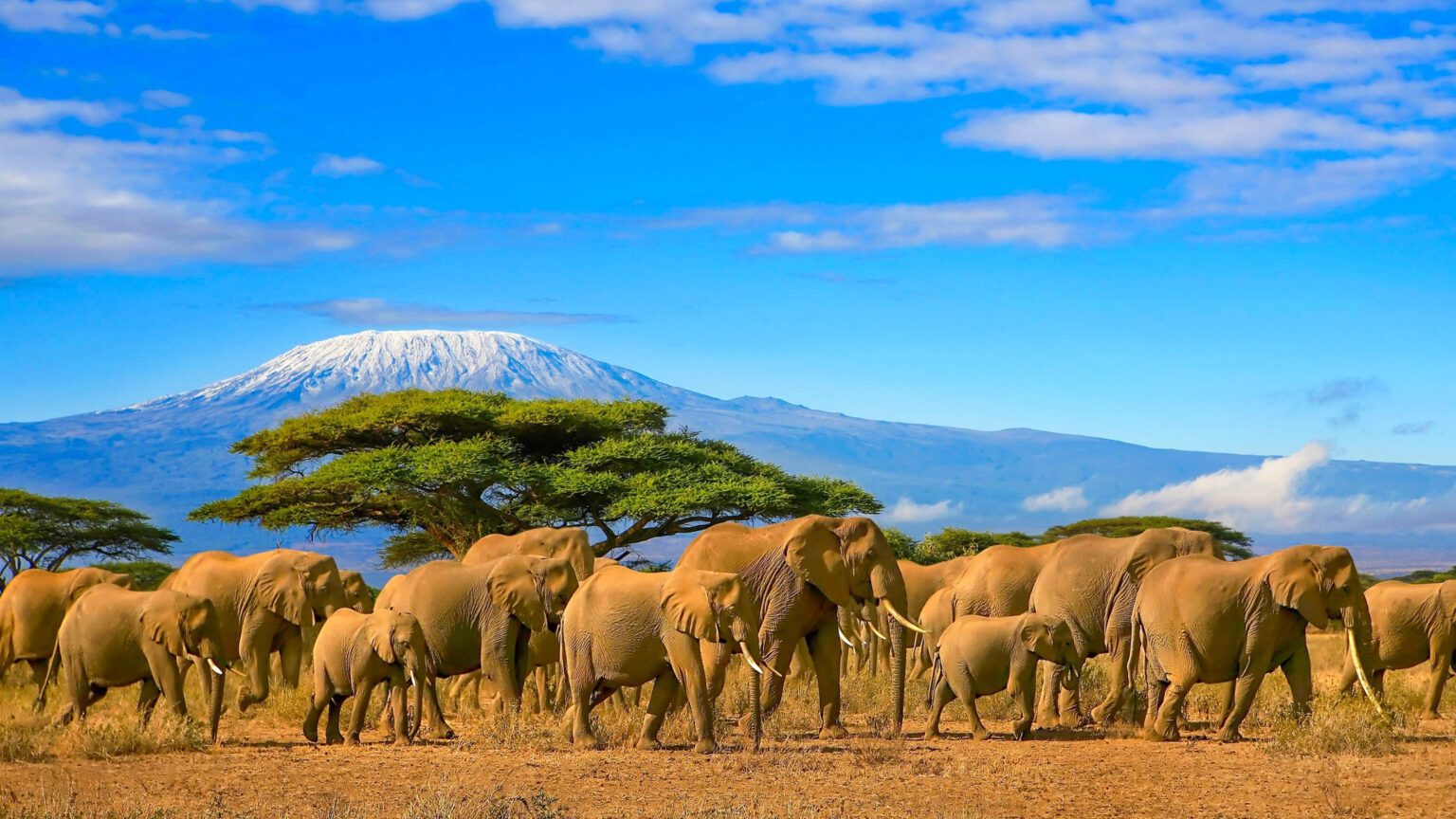- Sierra Leone blueprint on tackling Africa’s $90 billion illicit financial flows
- West Africa’s agribusinesses gear up for regional trade
- Revving up: Africa’s auto industry steers toward prosperity
- Airbus bolsters African aviation with Johannesburg support hub
- Google unveils $37M funding to speed up AI adoption, skilling in Africa
- South Africa eyes October exit from illicit flows dirty list
- Dodoma gears up as Tanzania’s next investment frontier
- Global warming places Africa’s wildlife in peril
Author: James Ndwaru
I am a writer based in Kenya with over 10 years of experience in business, economics, technology, law, and environmental studies.
Intra-regional trade in Africa serves as the backbone of economic transformation. East African Community (EAC) member states are increasingly trading with one another and with other African countries. At the same time, they reduced their trade with other continents like Europe, Asia, and other parts of the world, shaping the intra-regional trade in Africa’s dream projected to boost commerce and livelihoods on the continent.
The seven countries in the region (as of 2023) increased their trade with the rest of Africa by $584.6 million to $4.3 billion in the fourth quarter of 2023, a 14 per cent rise compared with a similar period in 2022, according to the latest data by the EAC Secretariat.
Cross-border trade within the region also recorded a 12 per cent rise, from the previous year’s $2.6 billion to $2.9 billion in last year’s Quarter 4, indicating rising trade within the region over the year.
During …
- Artificial Intelligence (AI) integration into various industries has sparked a wave of both anticipation and concern among employees.
- As AI and automation become prevalent, new job categories and roles emerge.
- Cultivating interpersonal skills and collaborating effectively with technology to drive innovation and achieve successful outcomes in the future workplace is key.
Artificial Intelligence and automation in the business landscape
Artificial Intelligence (AI) integration into various industries has sparked a wave of both anticipation and concern among employees. As Artificial Intelligence evolves, employees express growing apprehensions about its impact on job security and overall well-being.
AI and automation are revolutionising the workforce, paving the way for a new era in employment. The adoption of artificial intelligence in automated technologies is poised to transform the job market. Organisations are turning to AI to improve operations and efficiency and stay competitive and relevant in a rapidly evolving landscape.
With the rise of AI …
- This climate finance deficit presents a pressing challenge to Africa, as it directly affects the continent’s capacity to address critical climate-related issues.
- African governments must adopt innovative financing opportunities that blend public and private partnerships.
- Leaders from Africa, the Republic of Korea, and the Global Green Growth Institute (GGGI) have jointly called for more collaboration and cooperation to bridge the climate finance gap
Climate finance
The climate finance gap has been a persistent topic of climate change discussions for the longest time. Despite a financing need exceeding $3 trillion by 2030, the continent receives merely about a 10th of its climate finance need, representing less than 5.5 per cent of the total global climate finance. This gap is felt especially keenly in countries like Uganda, which, despite being one of the many African countries committed to Nationally Determined Contributions (NDCs), experiences a distinct lack of climate funding.
According to the …
- Africa has traditionally been known to have vast untapped potential, and sports are no exception.
- Sports tourism has gained popularity, with tourists traveling to Africa to attend sporting events or participate in sports-related activities.
- Sports have become a booming investment sector in Africa accompanying the continent’s high-speed transformation.
Sports in Africa
Sports in Africa have immense positive socio-economic and cultural results on the communities in which they are embraced. From professionals to youth, sports impact many facets within a community through increased financial resources, camaraderie, and teaching fundamental life skills – such as working hard to achieve a goal, working within a team to better the collective group, and playing by the rules. In Africa, however, the role of sports in economic and social development has yet to be fully realised.
Africa has traditionally been known to have vast untapped potential, and sports are no exception. Sports can do much …
- The number of Africans living in urban areas is expected to increase to around 50 per cent by 2030.
- In the dynamic journey towards progress, the concept of “Smart Cities” emerges as a beacon of hope, transforming urban spaces into intelligent, efficient, and sustainable hubs.
- technology can help improve transportation systems. Mobile apps can inform people about real-time traffic updates, schedule public transportation, and facilitate carpooling or ride-sharing services.
Urbanisation in Africa is a force that has become irresistible, the number of Africans living in urban areas is expected to increase to around 50 per cent by 2030. The continent’s urbanisation rate, rated the highest in the world, can result in economic growth, transformation, and poverty reduction. Similarly, it can lead to increased inequality, urban poverty, and the growth of slums. Therefore, the laws, policies, and actions needed to reap positive results from Africa’s urbanisation are critical in the …
- Technological developments have completely changed how businesses run, engage with customers, and promote economic progress.
- Digital innovations like cloud computing, big data analytics, and machine learning have given organisations access to real-time information and personalised services.
- Disruptive technologies, characterised by their ability to significantly alter the business and social landscape, have driven massive economic transformations.
Technological change profoundly impacts businesses and the global economy in today’s rapidly evolving digital landscape. Technological developments have completely changed how businesses run, engage with customers, and promote economic progress.
Technological change has catalysed economic transformation, driven by various technological advancements. Businesses constantly adapt to new technologies to stay competitive, improve efficiency, and meet evolving consumer demands. The Internet of Things (IoT) and automation are examples of technological advancements that have completely changed various industries and organisational structures.
Technological change has reshaped work, leading to new employment patterns and skill requirements. The gig economy, involving …
- At the convergence of technology and marketing, social media platforms have become an imperative tool for businesses
- Recognising your target audience is the foundation of an effective social media strategy.
- Artificial intelligence (AI) has become increasingly imperative in the digital marketing landscape.
Social media marketing
Social media has transformed from a platform for personal connection into a relevant tool for businesses to engage with their audience, build brand awareness, and drive growth. The power of social media in business cannot be underestimated, as it offers a myriad of opportunities for organisations, brands and people to thrive in the competitive landscape.
At the convergence of technology and marketing, social media platforms have become an imperative tool for businesses and organisations to promote their brands and connect with their target audience. With the widespread adoption and ever-changing features, social media has a superior say on digital marketing strategies.
Furthermore, social media marketing …
- Small and medium enterprises have become vital drivers of economic growth in African countries.
- According to the African Development Bank Group, SMEs in Africa represent around 90 per cent of all businesses and contribute up to 33 per cent of Africa’s Gross Domestic Product (GDP).
- Access to capital is one of the biggest obstacles small and medium enterprises face in Africa.
Small and medium enterprises (SMEs) in Africa play a vital role in fostering sustainable development. With 90 per cent of all global businesses falling under the MSME category, these enterprises create employment, foster innovation, and contribute to gross domestic product (GDP) growth.
In recent years, small and medium enterprises have become vital drivers of economic growth in African countries. As the continent undergoes rapid development, these enterprises foster innovation, create jobs, and contribute to economic growth.
Small and medium enterprises form the bedrock of African economies, representing various …
- The tourism sector is increasingly important in the global economy.
- Tourism in Africa is still at an embryonic stage of development and is highly interconnected with longstanding growth and development challenges in infrastructure and security.
- A report predicts that a growing middle class will fuel Africa’s travel and tourism industry and a projected CAGR of 8.9 per cent or $731.4 billion in 2032 in the “leisure” market.
Tourism sector in Africa
Tourism sector is increasingly important in the global economy, contributing up to 5 per cent of total gross domestic product (GDP), 30 per cent of service exports, and approximately 225 million job opportunities.
Indeed, approximately 1 billion people travel internationally annually. Consumer receipts on tourism, hospitality, and recreational activities in Africa are projected to hit about $261.77 billion by 2030, $137.87 billion more than in 2015. From 1998 to 2015, service exports, such as tourism, have grown sixfold faster …
- The digital revolution in Africa is propelling various sectors into new realms of potential, and the gaming industry is no exception.
- Blockchain technology has the potential to benefit both game producers and players by offering a safe and transparent method of handling in-game transactions.
- African game developers have opted to look at incorporating new technologies into the games they offer, such as allowing players to use Bitcoin and blockchain technology while playing.
Africa’s gaming Industry
The digital revolution in Africa is propelling various sectors into new realms of potential, and the gaming industry is no exception. GeoPoll’s latest report, “Gaming in Africa,” explores the burgeoning gaming scene across Egypt, Kenya, Nigeria, and South Africa.
The African gaming industry is emerging as the fastest-growing for mobile gaming, driven by a young population, increasing smartphone adoption and a burgeoning interest in mobile games.
Africa is the final frontier for the video game …














